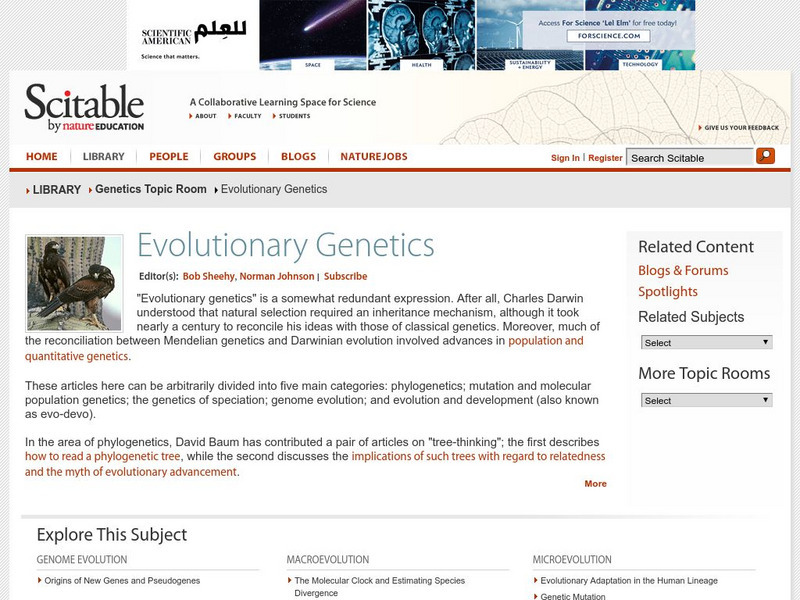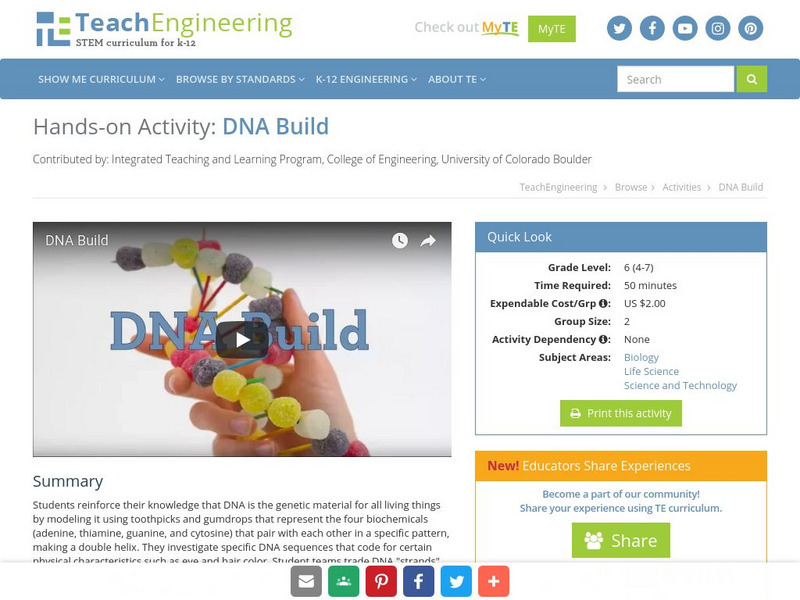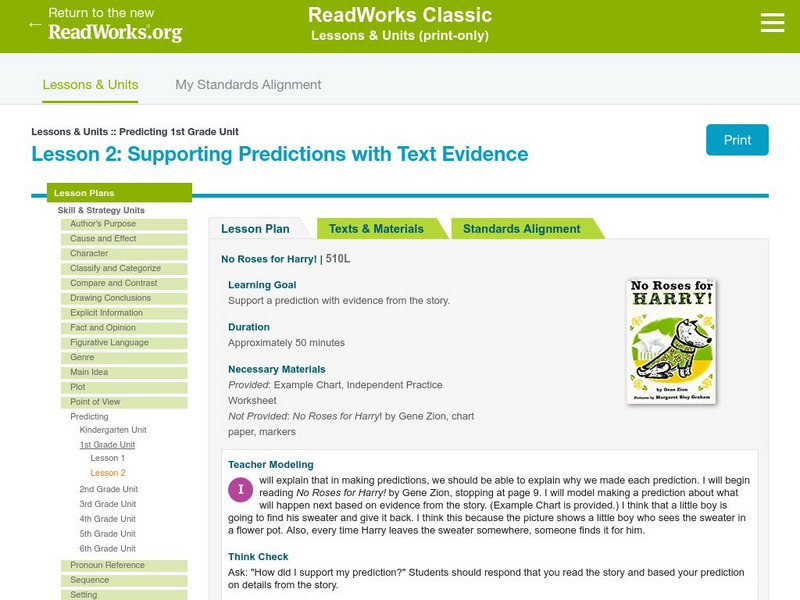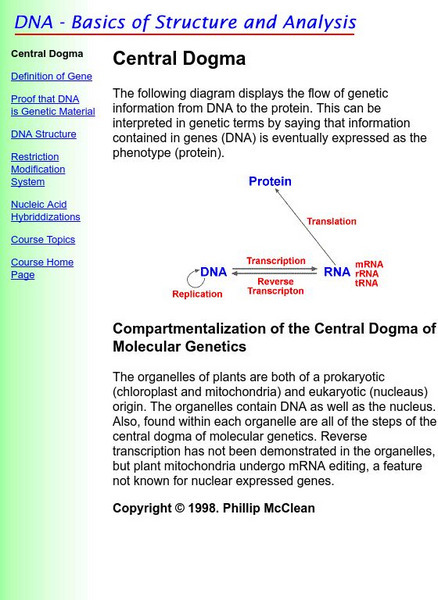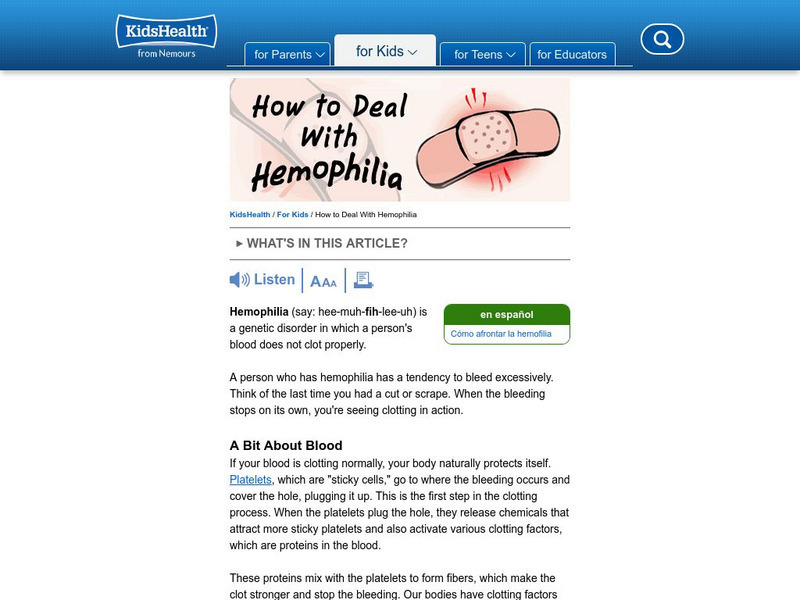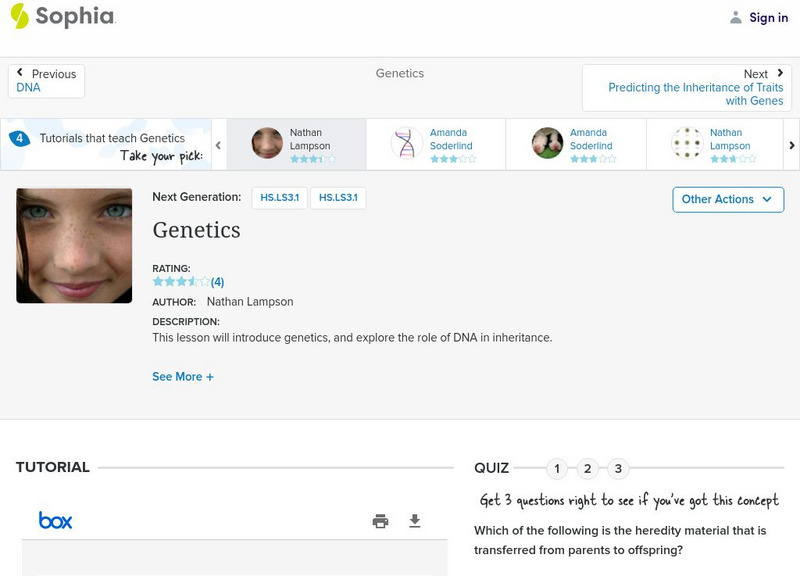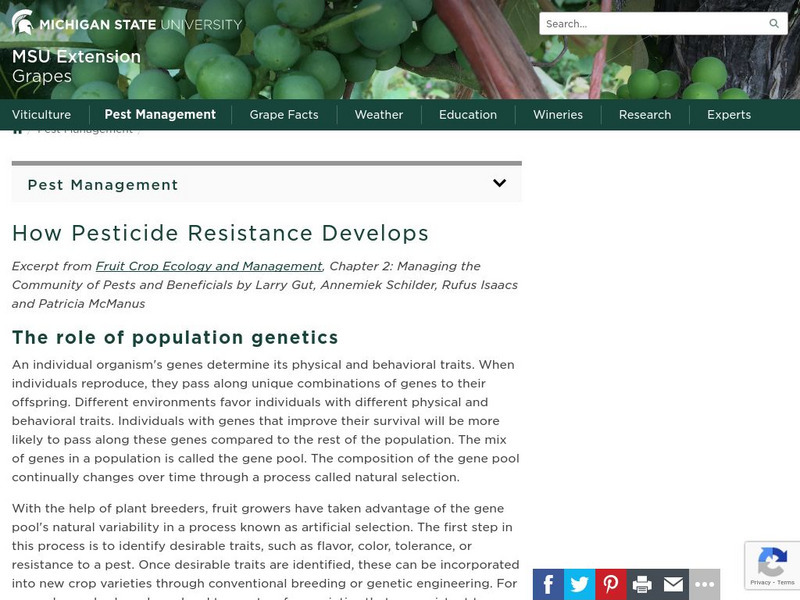BiologyWise
Biology Wise: What Is a Gene Pool and Why Is It Important?
Genetic diversity is only possible with a healthy gene pool in a population. This resource explains the characteristics of a gene pool, why it is important, and factors that cause it to change. The examples provided demonstrate the...
Nature Research
Scitable: Evolutionary Genetics
A collection of articles on evolutionary genetics focusing on the topics of phylogenetics, mutation and molecular population genetics, the genetics of speciation, genome evolution, and evolution and development. Learn how to read a...
TeachEngineering
Teach Engineering: Dna Build
Students reinforce their knowledge that DNA is the genetic material for all living things by modeling it using toothpicks and gumdrops that represent the four biochemicals (adenine, thiamine, guanine, and cytosine) that pair with each...
The Association of the British Pharmaceutical Industry
Abpi: Human Genome Project
An in-depth look at the human genome project and its scientific and social implications. Students work through interactive learning material, understanding the ethics involved in genetic studies. There is a suggested classroom activity...
CK-12 Foundation
Ck 12: Biology: Genetic Code
[Free Registration/Login may be required to access all resource tools.] Introduces the genetic code and how to read it.
About Kids Health
About Kids Health: How the Body Works: Genetics
Learn all about genetics and how it works in this interactive teaching aid that highlights the study of genes using colorful animated illustrations.
PBS
Pbs Learning Media: Molecular Clocks: Proteins That Evolve at Different Rates
In this graphic and article from "The Human Evolution Coloring Book" by Adrienne Zihlman, four different proteins from humans and horses are compared and the reasons each protein evolves at its own characteristic rate are discussed.
Science Buddies
Science Buddies: Learning Your A, G, C's (And T, Too)
This is a project about the "molecular alphabet" of DNA. With just four "letters," it manages to keep track of the plan for an entire person, and keep a complete copy in nearly every cell. This project will help you start learning this...
Concord Consortium
Concord Consortium: Geniventure
Geniventure engages students in exploring heredity, genetics, and the protein-to-trait relationship by breeding and studying virtual dragons. Students play through six levels of challenges, conducting simulated experiments that generate...
CK-12 Foundation
Ck 12: Plix: Punnett Squares
[Free Registration/Login Required] Use the color coding to help you complete the Punnett Square. You will need a sign-in to help you access this media, but it will be worth your time!
Read Works
Read Works: 1st Grade Unit: Supporting Predictions
[Free Registration/Login Required] A lesson utilizing the book No Roses for Harry! by Gene Zionin in which students make a prediction and then support it with details from the text. Ideas for direct teaching, guided practice, and...
CK-12 Foundation
Ck 12: Plix: Punnett Squares
[Free Registration/Login Required] Complete the Punnett Square in the interactive by moving the rectangles in the box. You will need a sign-in for this media, but it is well worth your time!
Other
North Dakota State: Central Dogma
Information about how DNA is viewed in modern biology (it is at the center) and what its role is.
Other
Conservation Ecology: Assessing Extinction Risk
This site discusses how genetic variability is correlated with the risk of organism extinction. It also discusses how bottlenecks can reduce genetic variability in populations leading to extinctions.
Curated OER
Kids Health: How to Deal With Hemophilia
What is hemophilia, how do you get it, and how do doctors treat it? Find out the answers to these questions and more in this article just for kids.
Genome British Columbia
Genome British Columbia: Terminator Technology for Gm Crops
In 1998, American scientists developed terminator seeds which grew into plants that were unable to reproduce. While this practice prevents the dangerous flow of genes to the wild, it has some disadvantages, for example, the added expense...
PBS
Pbs Teachers: Scientific American: Never Say Die: Wisdom of the Worms
Explore scientific research in gene mapping, and discover the way genes regulate aging in people. View actual DNA after isolating it from onion cells.
Sophia Learning
Sophia: Genetics: Lesson 5
This lesson will introduce genetics, and explore the role of DNA in inheritance. It is 5 of 6 in the series titled "Genetics."
Sophia Learning
Sophia: Genetics: Lesson 6
This lesson will introduce genetics, and explore the role of DNA in inheritance. It is 6 of 6 in the series titled "Genetics."
Michigan State University
Michigan State University: How Pesticide Resistance Develops
An individual organism's genes determine its physical and behavioral traits. When individuals reproduce, they pass along unique combinations of genes to their offspring. Different environments favor individuals with different physical...
CK-12 Foundation
Ck 12: Life Science: Hardy Weinberg Theorem
[Free Registration/Login may be required to access all resource tools.] Sometimes understanding how common a gene is within a population is necessary. Or, more specifically, you may want to know how common a certain form of that gene is...
CK-12 Foundation
Ck 12: Life Science: Recombinant Dna
[Free Registration/Login may be required to access all resource tools.] Recombinant DNA is the combination of DNA from two different sources. For example, it is possible to place a human gene into bacterial DNA. Recombinant DNA...
Other
Society for General Microbiology: Bacteria
Bacteria are single celled microbes. The cell structure is simpler than that of other organisms as there is no nucleus or membrane bound organelles. Instead their control centre containing the genetic information is contained in a single...
BBC
Bbc: Gcse Bitesize: Genetic Inheritance Aqa
Our genes are inherited from our parents, and the different combinations of these genes make us unique. Genetic inheritance controls the characteristics of all living things. This lesson focuses on the inheritance of biological sex in...



